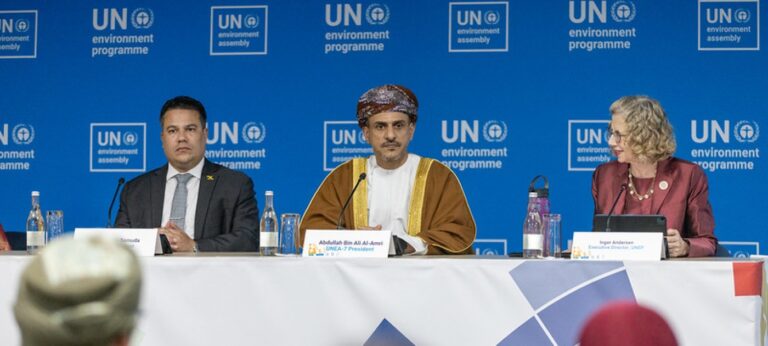
The Hague: The International Court of Justice (ICJ) today said that Israel’s assertion of sovereignty and its annexation of certain parts of the Palestinian territory constituted a violation of the prohibition of the acquisition of territory by force.
“The sustained abuse by Israel of its position as an occupying Power, through annexation and an assertion of permanent control over the Occupied Palestinian Territory and continued frustration of the right of the Palestinian people to self-determination, violates fundamental principles of international law and renders Israel’s presence in the Occupied Palestinian Territory unlawful,” the Court said.
“This violation has a direct impact on the legality of Israel’s continued presence, as an occupying Power, in the Occupied Palestinian Territory,” it added, making it clear that this illegality related to the entirety of the Palestinian territory occupied by Israel in 1967.
The International Court of Justice was today giving its Advisory Opinion in respect of the “Legal Consequences arising from the Policies and Practices of Israel in the Occupied Palestinian Territory, including East Jerusalem”.
The Court was of the considered view that Israel was not entitled to sovereignty over or to exercise sovereign powers in any part of the Occupied Palestinian Territory on account of its occupation. “Nor can Israel’s security concerns override the principle of the prohibition of the acquisition of territory by force,” it said.
The Court further said that to seek to acquire sovereignty over an occupied Palestinian territory, as shown by the policies and practices adopted by Israel in East Jerusalem and the West Bank, “is contrary to the prohibition of the use of force in international relations and its corollary principle of the non-acquisition of territory by force”.
The ICJ ruled that the Israeli settlements in the West Bank and East Jerusalem, and the régime associated with them, had been established and were being maintained in violation of international law. It noted “with grave concern” reports that Israel’s settlement policy had been expanding since the Court’s Advisory Opinion of July 9, 2004, where it concluded that the Israeli settlements in the Occupied Palestinian Territory (including East Jerusalem) had been established in breach of international law.
The Court also examined the question of the legal consequences arising from Israel’s adoption of related discriminatory legislation and measures and concluded that a broad array of legislation adopted and measures taken by Israel in its capacity as an occupying Power treated Palestinians differently on grounds specified by international law.
It noted that this differentiation of treatment could not be justified with reference to reasonable and objective criteria nor to a legitimate public aim. Accordingly, the Court was of the view that the régime of comprehensive restrictions imposed by Israel on Palestinians in the Occupied Palestinian Territory constituted systemic discrimination based on race, religion or ethnic origin, in violation of Articles 2, paragraph 1, and 26 of the International Covenant on Civil and Political Rights, Article 2, paragraph 2, of the International Covenant on Economic, Social and Cultural Rights, and Article 2 of the International Convention on the Elimination of All Forms of Racial Discrimination.
The Court further observed that the effects of Israel’s policies and practices, and its exercise of sovereignty over certain parts of the Occupied Palestinian Territory, constituted an obstruction to the exercise by the Palestinian people of its right to self-determination. The effects of these policies and practices included Israel’s annexation of parts of the Occupied Palestinian Territory, the fragmentation of this territory, undermining its integrity, the deprivation of the Palestinian people of the enjoyment of the natural resources of the territory and its impairment of the Palestinian people’s right to pursue its economic, social and cultural development.
As a consequence of Israel’s policies and practices, which span decades, the Court noted that the Palestinian people had been deprived of their right to self‐determination over a long period, and further prolongation of these policies and practices undermined the exercise of this right in the future.
The prolonged deprivation of the Palestinian people of its right to self-determination constituted a breach of their fundamental right. This breach had a direct impact on the legality of Israel’s presence, as an occupying Power, in the Occupied Palestinian Territory. The Court said that occupation could not be used in such a manner as to leave indefinitely the occupied population in a state of suspension and uncertainty, denying them their right to self-determination while integrating parts of their territory into the occupying Power’s own territory. For these reasons, the Court considered that Israel’s unlawful policies and practices were in breach of Israel’s obligation to respect the right of the Palestinian people to self‐determination.
It is recalled that, on December 30, 2022, the General Assembly of the United Nations adopted resolution A/RES/77/247 in which, referring to Article 65 of the Statute of the Court, it requested the International Court of Justice to give an advisory opinion on the following questions:
“(a) What are the legal consequences arising from the ongoing violation by Israel of the right of the Palestinian people to self-determination, from its prolonged occupation, settlement and annexation of the Palestinian territory occupied since 1967, including measures aimed at altering the demographic composition, character and status of the Holy City of Jerusalem, and from its adoption of related discriminatory legislation and measures?
(b) How do the policies and practices of Israel refer to . . . above affect the legal status of the occupation, and what are the legal consequences that arise for all States and the United Nations from this status?”
In its Advisory Opinion, the Court today responded to the questions posed by the General Assembly by concluding that:
- Israel’s continued presence in the Occupied Palestinian Territory is unlawful;
- Israel is under an obligation to bring to an end its unlawful presence in the Occupied Palestinian Territory as rapidly as possible;
- Israel is under an obligation to cease immediately all new settlement activities, and to evacuate all settlers from the Occupied Palestinian Territory;
- Israel has the obligation to make reparation for the damage caused to all the natural or legal persons concerned in the Occupied Palestinian Territory;
- All States are under an obligation not to recognize as legal the situation arising from the unlawful presence of Israel in the Occupied Palestinian Territory and not to render aid or assistance in maintaining the situation created by the continued presence of the State of Israel in the Occupied Palestinian Territory;
- International organizations, including the United Nations, are under an obligation not to recognize as legal the situation arising from the unlawful presence of the State of Israel in the Occupied Palestinian Territory; and
- The United Nations, and especially the General Assembly, which requested the opinion, and the Security Council, should consider the precise modalities and further action required to bring to an end as rapidly as possible the unlawful presence of the State of Israel in the Occupied Palestinian Territory.
– global bihari bureau





